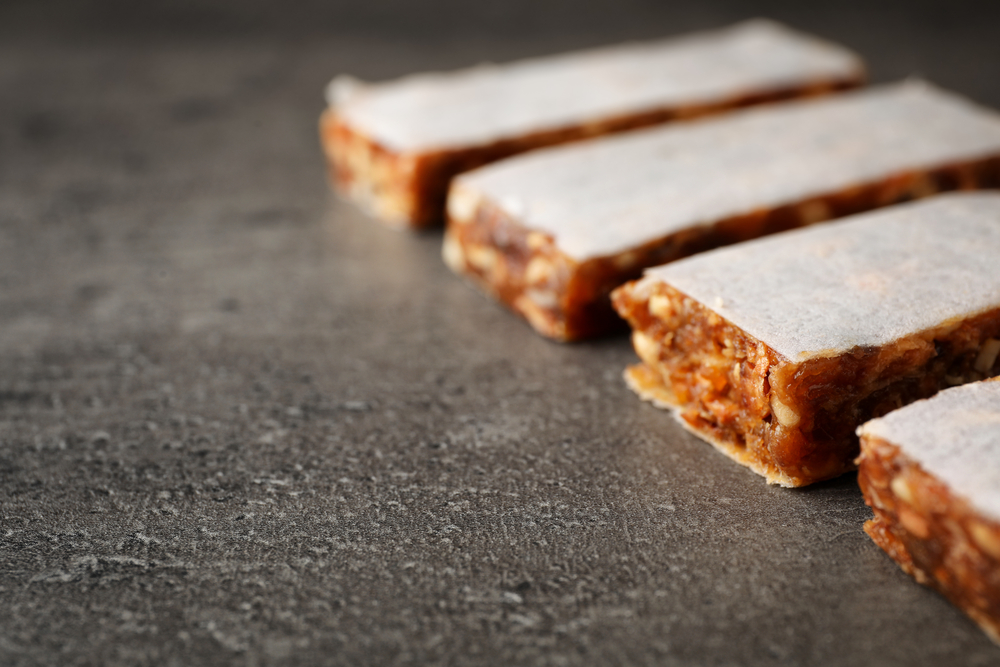Mountain stages are often crucial for the general classification race. The Tour nutrition goal of every rider is to start the mountain stage with a full tank of energy, ingest as many carbs as possible on the bike and continue eating a lot to recover well. This is what a hard mountain-stage fuelling plan might look like.
The day before
It’s essential to start preparing the day before to replenish the glycogen reserves overnight. That’s why dinner usually consists of a big serving of carbs in the form of white rice. Some protein source like chicken is typically included too. Riders are often also given a high-carb dessert like pancakes or a fruit pie to really get as much energy in as possible. The aim is to get about 2-3 g of carbs per 1 kg of bodyweight.

Breakfast
Breakfast contains the usual omelette, rice, and juice but much larger portions than before a flat stage. And riders will often go for pancakes with jam to hit the desired 2-3 g of carbs per 1 kg of bodyweight.
On the bike
The amount of energy bars, rice cakes, and gels riders have to eat is crazy high for mountain stages. A 6-hour stage can easily require 20 pieces of such carb snacks. But the secret weapons in mountain stages are energy drinks. Pro teams use special multi-source drinks that allow riders to absorb up to 90 g of carbs per hour.

Recovery
All of this heavy eating continues even when the riders finish and get off the bike. They start with a large recovery drink, later they continue with rice with syrup to get a huge amount of carbs in, and they often keep snacking on energy bars, fruits, and even candy. This recovery stage calls for up to 5 g of carbs per 1 kg of bodyweight.
Dinner
The size of their dinner varies depending on what stage comes next. Unless it’s a rest day or an easy flat stage, the riders will still aim to eat 2-3 g of carbs per 1 kg of bodyweight and a good amount of protein to fulfil their Tour nutrition plan. They might have rice with salmon and fruit juice. Tour de France pros end the mountain-stage day with 15 g of carbs per 1 kg bodyweight or even higher. Don’t try this at home!




